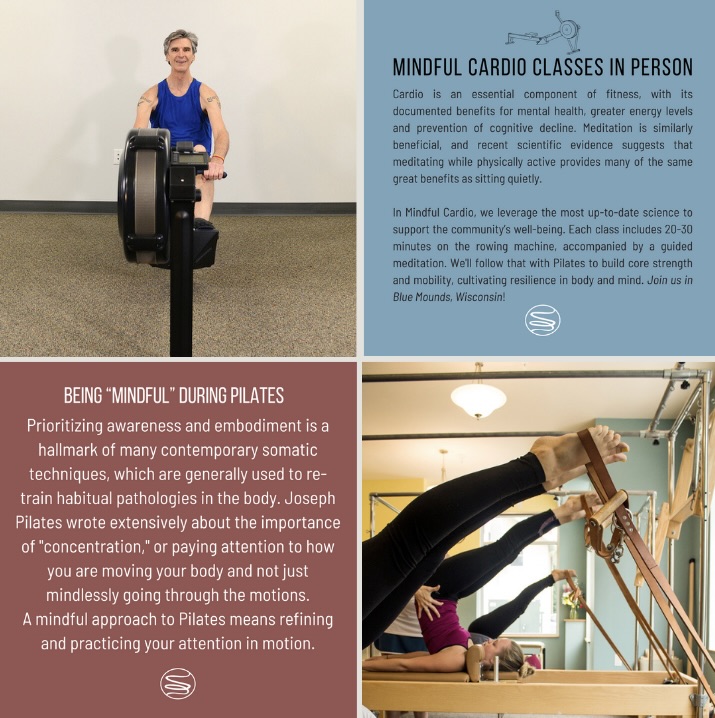Is Deep Breathing Yoga's Secret Sauce?
When people speak about Yoga and its feel-good properties, they often suggest that slow, deep breathing is the reason that Yoga often feels good. While I cannot deny that an awareness or modification of breathing is indeed a defining characteristic of Modern Postural Yoga, I'm not convinced that Yoga's benefits are all about the breathing. Yes, the breathing's effect on the nervous system may be what makes us feel good after a Yoga practice, though it may turn out that Yoga stimulates the endocannabinoid system, increases the activity of the paraventricular hypothalamus (and stimulates the release of oxytocin), or activates another of the various feel-good systems that are embedded within the human body. I sure don't know, and I'm not sure that anyone fully understands why Yoga feels good.
What do we know about slow, deep breathing? In a Yogic interpretation of the Polyvagal Theory, proponents suggest that deep breathing increases Heart Rate Variability (HRV). HRV, in turn, has been shown to correlate with greater activity in the parasympathetic branch of the autonomic nervous system. Voila: deep breathing = increased parasympathetic activity = greater HRV = enhanced rest and recovery = feeling good.
There's only one detail problem - the relationship between deep breathing, HRV and vagal tone is an imperfect one. Below is a quote from a highly regarded academic paper by Grossman and Taylor:
Alterations in respiration rate and tidal volume had profound effects upon RSA magnitude that were unrelated to directly determined levels of cardiac vagal tone.
What does this mean? It means that HRV and vagus activity are strongly correlated... except when the breathing is altered. In the case of slow, deep breathing, the measures of HRV and vagal tone decouple. Yes, deep breathing can increase HRV, though this increased HRV doesn't necessarily translate into moving the proverbial needle from fight/flight/freeze to rest and digest. Because of the strength of the evidence supporting Grossman and Taylor's statement, some scientists consider HRV a measure of vagal tone only if the rate and depth of breathing is controlled for within a study.
This posting has gotten a bit technical, so I'd like to summarize its thoughts in the following bullet points:
 |
| Buddy's vagal tone (and heart rate variability) appear to be elevated. |
There's only one detail problem - the relationship between deep breathing, HRV and vagal tone is an imperfect one. Below is a quote from a highly regarded academic paper by Grossman and Taylor:
Alterations in respiration rate and tidal volume had profound effects upon RSA magnitude that were unrelated to directly determined levels of cardiac vagal tone.
(from: Grossman, P., and; Taylor, E. W. (2007). Toward understanding respiratory sinus arrhythmia: relations to cardiac vagal tone, evolution and biobehavioral functions. Biological psychology, 74(2), 263-285.)
What does this mean? It means that HRV and vagus activity are strongly correlated... except when the breathing is altered. In the case of slow, deep breathing, the measures of HRV and vagal tone decouple. Yes, deep breathing can increase HRV, though this increased HRV doesn't necessarily translate into moving the proverbial needle from fight/flight/freeze to rest and digest. Because of the strength of the evidence supporting Grossman and Taylor's statement, some scientists consider HRV a measure of vagal tone only if the rate and depth of breathing is controlled for within a study.
This posting has gotten a bit technical, so I'd like to summarize its thoughts in the following bullet points:
- Slow, deep breathing is a part of many Yogic traditions
- HRV is a validated measure of vagal tone (relaxation response)
- Slow, deep breathing increases HRV
- HRV and vagal tone decouple in the presence of deep breathing
- The upshot; claims that slow, deep breathing causes the relaxation and/or feel-good response are not necessarily supported by the Polyvagal Theory
As a result, claims that slow, deep breathing causes this, that or the other thing in Yoga may end up validated in the future, though at current time, the evidence is inconclusive.



Comments